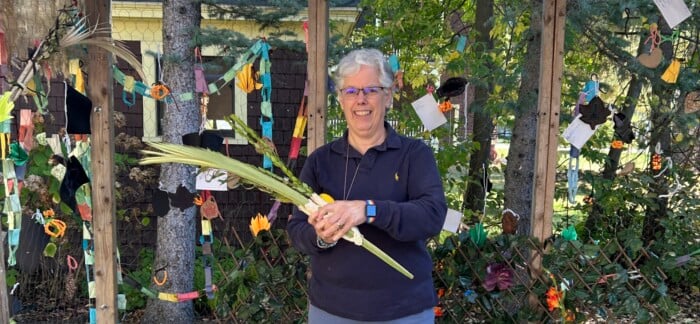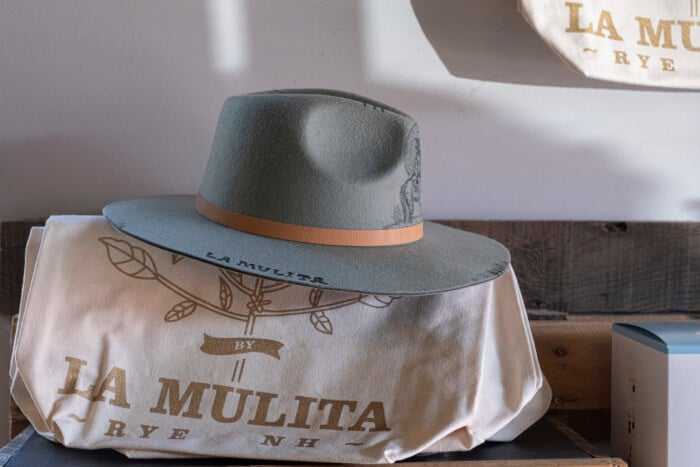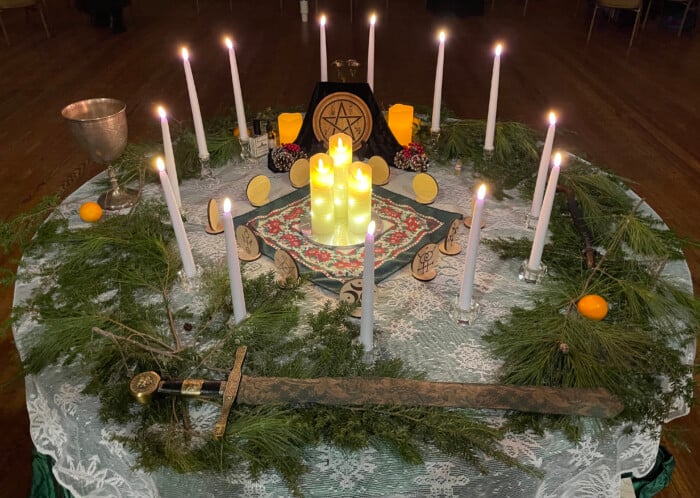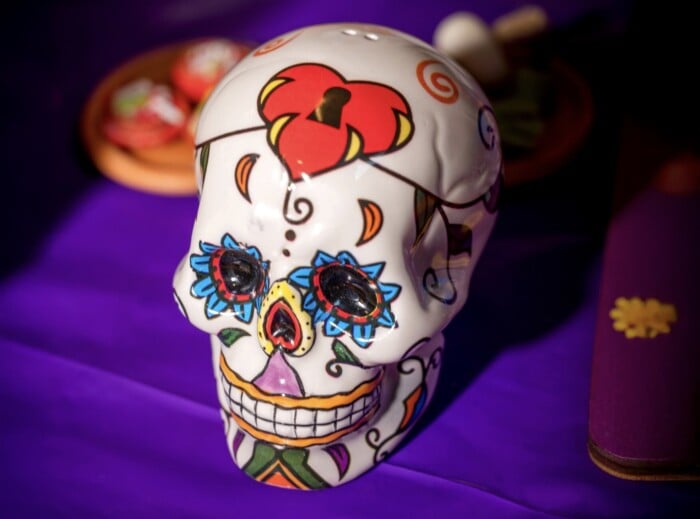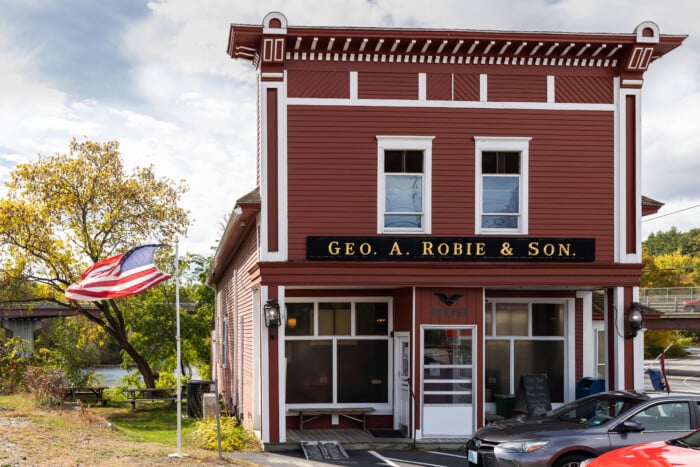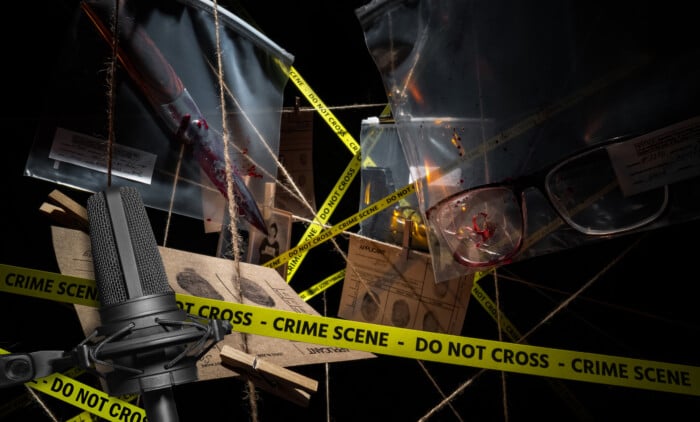‘Property of the Revolution’
New Hampshire author shares stories of resilience, love and the Cuban immigrant experience in new book
 As a 5-year-old in November 1967, Ana Hebra Flaster lived in a “lemon yellow house on the corner,” in Juanelo, a neighborhood outside Havana, Cuba. Back then, Ana was constantly surrounded by four generations of her loving family — aunts, uncles, brothers, cousins and grandparents — in a tight-knit, vibrant community.
As a 5-year-old in November 1967, Ana Hebra Flaster lived in a “lemon yellow house on the corner,” in Juanelo, a neighborhood outside Havana, Cuba. Back then, Ana was constantly surrounded by four generations of her loving family — aunts, uncles, brothers, cousins and grandparents — in a tight-knit, vibrant community.
Although a typical day for Ana included “chasing skinny hens in Abuela Cuca’s yard,” she also started noticing something else: Her friends would be there one day and vanish the next, the front doors of their empty homes emblazoned with
an ominous message.
In her new memoir, “Property of the Revolution: From a Cuban Barrio to a New Hampshire Mill Town,” Flaster remembers “that last normal afternoon in the barrio,” when the family itself hastily uprooted from all they knew and became immigrants, arriving in the U.S. as political refugees from post-revolutionary Cuba.
Landing in New Hampshire, they were forced to rely on the kindness of strangers. They were part of the mass exodus of Cubans escaping Fidel Castro’s regime, which had overthrown Fulgencio Batista’s dictatorship on Jan. 1, 1959.
Through stories that were told and retold over the decades, Flaster unpacks the trauma of being a child immigrant and shares narratives of love, heroism and strength.
Q: Why is now the right time for you to write a memoir?
 Hebra Flaster: I’ve been collecting material for this story all my life, having listened to five adults in the household describe the revolution, its promises and betrayals, the tipping points they reached and what triggered them, what it was like to start from nothing in a climate and culture so foreign to them. Of course, my own childhood memories supplied a lot of the material for the book. But I think the spark for the serious writing came from the growing anti-immigrant sentiment over the last decade or so. It wasn’t happening in just our country. Europe, Latin America, countries bordering war zones were all affected by the record-breaking numbers of displaced persons and the pushback from native populations.
Hebra Flaster: I’ve been collecting material for this story all my life, having listened to five adults in the household describe the revolution, its promises and betrayals, the tipping points they reached and what triggered them, what it was like to start from nothing in a climate and culture so foreign to them. Of course, my own childhood memories supplied a lot of the material for the book. But I think the spark for the serious writing came from the growing anti-immigrant sentiment over the last decade or so. It wasn’t happening in just our country. Europe, Latin America, countries bordering war zones were all affected by the record-breaking numbers of displaced persons and the pushback from native populations.
Q: What does the phrase “Property of the Revolution” mean to you?
Hebra Flaster: Two things. First, it was the slogan printed on the banner the guard used to seal our front door when he kicked us out of our home. It was years before I learned what the banner said, but it stuck with me. It was the emblem of a life-changing moment, not just in my life and in my family’s lives, but in the lives of the loved ones we left behind and never saw again.
Second, as much as I hated to admit it, the revolution still marks me and my family, and I think anyone who lost home, country and culture to it … it’s a bittersweet title, like the experience of forced exile itself.
Q: Why did you write the book from your perspective as a child?
Hebra Flaster: I wanted to explore the child refugee experience. Being kicked out of your house and losing your family and never seeing people again, suddenly being uprooted and being thrown into a new culture and what it did to my family — fundamentally, it changed everybody. So in a way, I’ve been in that same moment all my life. It’s a moment that changed me forever. So I really wanted to capture the confusion and the emotional toll it takes on a child. I also wanted to make sure to pay attention to the impact on elders. I feel like, in the story of immigrants and refugees, usually it’s the people in their prime and family that are leading the way and solving the problems. And then there are these two forgotten bookend generations that kind of roll along with everything, don’t have much of a voice, and often don’t even understand what’s happening.
Q: Your departure from Cuba in an airplane, as you describe watching your homeland just disappear, is a powerful moment in the book.
Hebra Flaster: Just hearing you say that, I can see exactly what I saw through that little window, but I didn’t know that it was going away forever, which was a challenge actually, when I was writing the book. It’s told from a child’s point of view, but it’s shaped by an adult decades later, looking back at that and interpreting it. The Ana in that moment didn’t know it
was the end of that world. She was just looking at something new, ridiculously beautiful and new in the turquoise of that water. But the woman writing it knows what it meant.
Q: In Chapter 4, “Receive From Me a Warrior’s Heart,” your dad, who you call “Papi,” and the other men in the family had found a newspaper listing about a farmhouse for rent at 62 Amherst St. in Nashua, a month after leaving Cuba. Why did you include this excerpt?
Hebra Flaster: It was the moment my father hit the most important home run of his life. He’d left us in New York, hoping to find a better home for us in Nashua, where another Cuban family had settled. Ray Flanders, the owner of the rental Papi found in the Nashua Telegraph listings, liked Papi from the start, and Cubans, too — lucky for us. He not only offered to rent the house to Papi without a deposit, he also offered any adults of working age jobs at the factory where he was a foreman. Just like that, we met our future. Thank you, Ray!
Q: What were some comforts to you when you first got to Nashua?
Hebra Flaster: The love in our home, and especially the central place of us as children in the home. Above all, the love in our multigenerational family. We may have been shattered in some ways, but we were unshatterable in the most important way. That’s one of the things I loved about writing the book, is that over and over I kept thinking about how great New Hampshire had been for our family as a place to grow up and land, and it was just a wonderful, wonderful place to have grown up. The way my parents’ co-workers at the factories took us all under their wing (also made us feel welcome). They probably never understood the impact of their
kindness to a family trying to find a home.
Q: As so many of your family members lived together in one house, did others in the community welcome that new dynamic?
Hebra Flaster: A lot of our friends liked to hang out at the house, and I think it was weird to them but fascinating. And of course, my grandmother always made them food.
Q: Some of your family members wanted to live in other Cuban neighborhoods in America rather than New Hampshire. Did you feel like you were missing out on some parts of your culture?
Hebra Flaster: I’m really glad my parents didn’t settle in a heavily populated community of Cubans, because I think we were able to shape what it meant to be Cuban completely, because we created our own little island of Cuban-ness.
Q: Were you able to find peace in going back and processing all that happened?
Hebra Flaster: In general, therapy hasn’t really worked for me, but writing has. It was a key to recovering a lot of the memories that I had buried as I began to write. These elders who did the unthinkable and split apart from their family in order to save the younger family and let them live in liberty … they’ve always been heroes to us, but writing about it, I appreciated it in a whole new way.
Q: Can you give a few examples about how the women in your family were such strong role models for you?
Hebra Flaster: My mother and my aunt were really different people, but they both had a very strong moral foundation. They were wise.
As an example: I wanted to be an American girl and go away to college like my friends were. My father was horrified because I wasn’t married. How could he have let me outside of the home as an unmarried young woman? My mother, aunt and grandmother, for a couple of years, worked on him and worked on him until he finally agreed, and then I went out to Smith College. But he wanted me to go to the local Catholic college and come home every night.
Let’s see … strength: A lot of the stories of their strengths and belief in themselves come from the stories of how they handled the post-revolution. My mother stood up for people many times and got in a lot of trouble. She had been a supporter of the revolution.
Here’s an example: Right when the rebels came into Havana in January of 1959, there was a lot of violence because people wanted to settle scores with people who had been in the dictatorship, the soldiers, police. There was a police officer in our neighborhood who saved her, possibly her life. And he was somebody that everybody knew and respected, a good man. When the rebels rolled them in, they were targeting anybody in a uniform, and a crowd of friends from the neighborhood came running and said ‘they’re going to hang Manso’ — his last name was Manso — and (saying) ‘you have to help.’ And she and her uncle ran off and the neighbors joined them, and when they got to Manso’s house, there was a gang inside his house with a rope, a big, long rope coiled around one of the guys’ arms, and they had guns, and Manso, in his uniform, was sitting on the couch next to his wife. And there was a tension in that room. It was incredible, and my mother talked them down and saved Manso.
Q: You describe the sacrifices and risks your family took to ensure they could survive, and thrive, in New Hampshire. You don’t want it revealed here, but in the book, your aunt found an ingenious way to smuggle her diploma out of Cuba, which allowed her to have a teaching career in the U.S.
Hebra Flaster: My aunt was a strong woman, in a different way. Once she decided what was right, there was nobody who was going to stop her. For example, she was once a big fan of the revolution at the beginning. She had been a revolutionary, and something happened, and that’s in the book, too.
My aunt decided that the revolution wasn’t honest, it wasn’t fair. So she decided she was going to get her two boys out of the country. But the problem was that they were changing the age of military duty — lowering it — and once a boy reached that age, he wouldn’t be allowed to leave. So she convinced her husband to officially separate from her, even though they loved each other.
When you left, (everything) you owned (went) to the government. No bank accounts, no money, and you couldn’t give it to a relative. You couldn’t sell anything you owned. Everything (would) just go right into the revolution’s coffers, and you couldn’t take anything of value, including diplomas. But my aunt had a doctorate in pedagogy. She wanted to teach in the United States, and knew that she would need the diploma, right?
But how could she take it out? My mother and she fought over this decision. My mother said, ‘You’re risking everything. If they catch you, they’ll throw you in jail. What will happen to the kids?’
Once (my aunt) decided, she was like a horse with blinders: Bam. That’s what she was gonna do, and that’s what she did. Thank God she did, because (she taught) Spanish at Nashua High for over 30 years. I thought of her as a hero. 603
Ana Hebra Flaster is a freelance writer who’s known for her @CubaCurious blog on Substack.
This article was featured in 603 Diversity.
603 Diversity’s mission is to educate readers of all backgrounds about the exciting accomplishments and cultural contributions of the state’s diverse communities, as well as the challenges faced and support needed by those communities to continue to grow and thrive in the Granite State.


